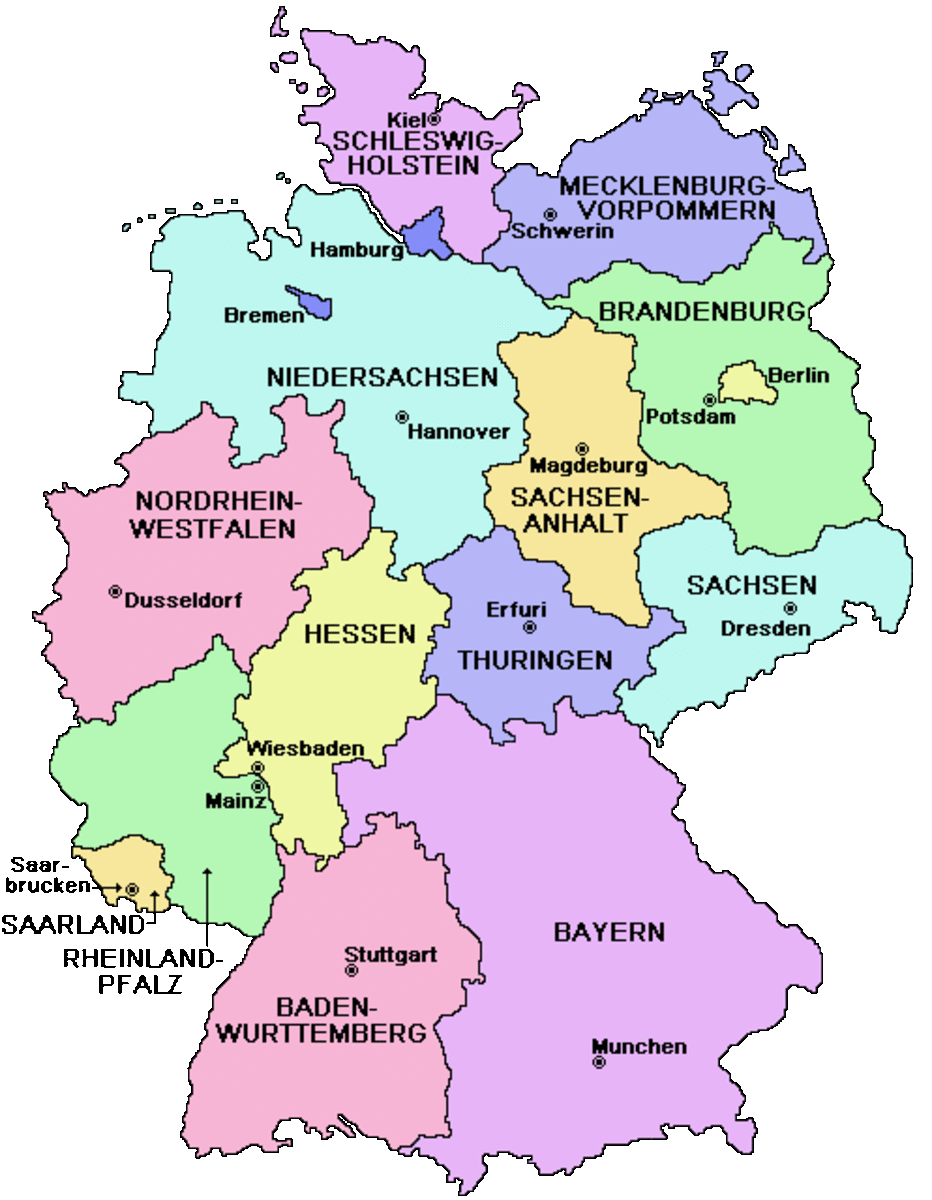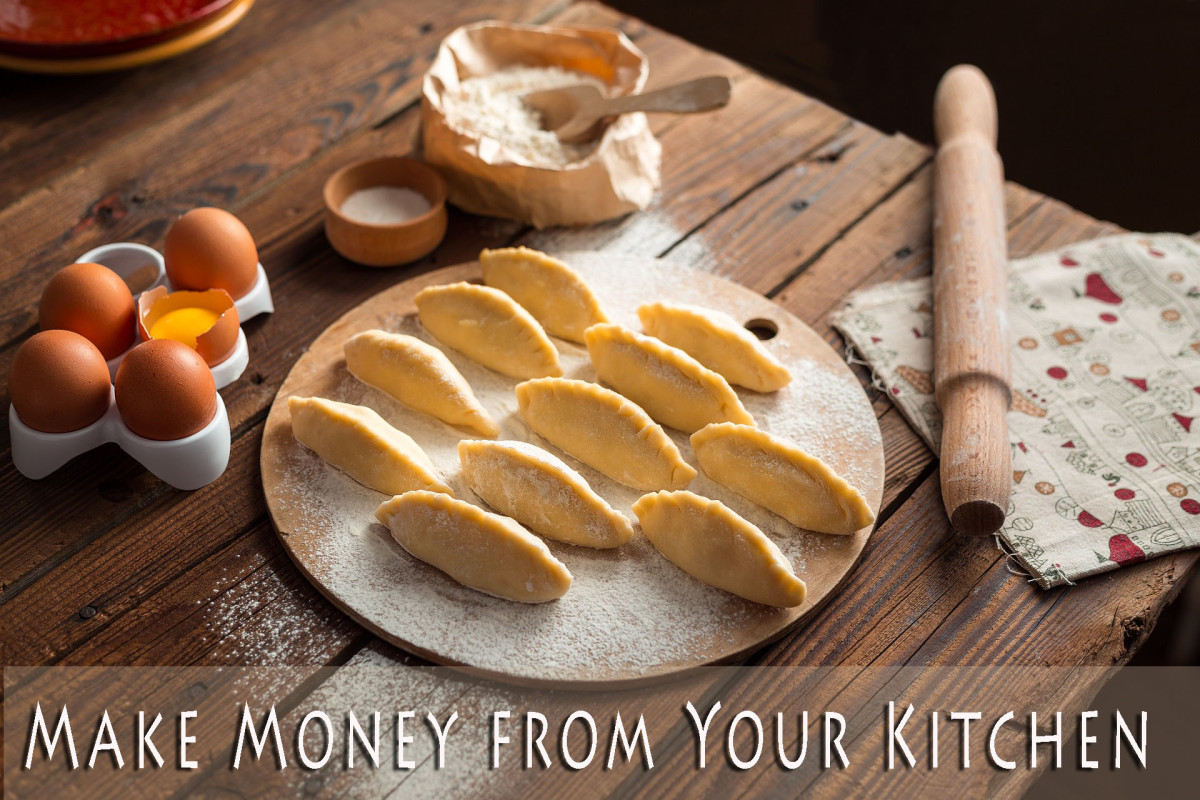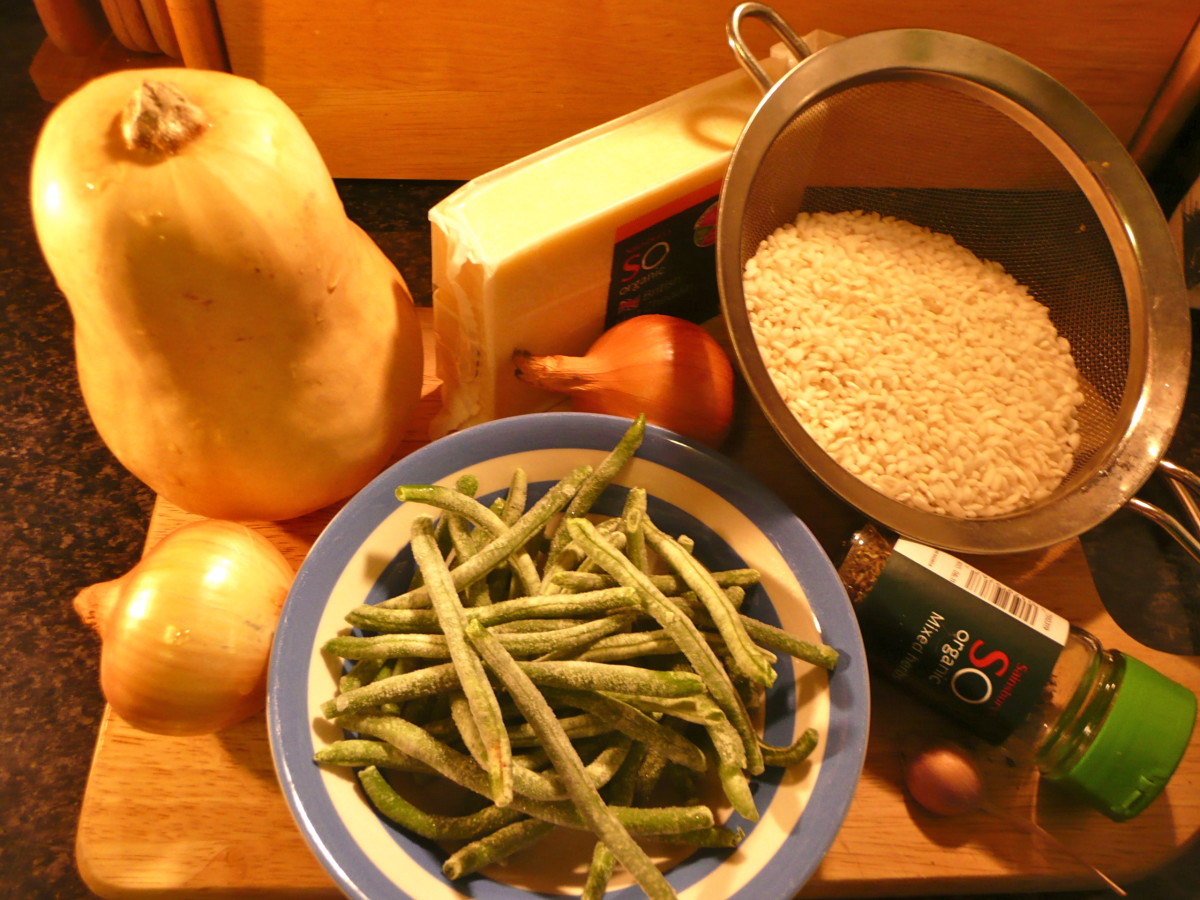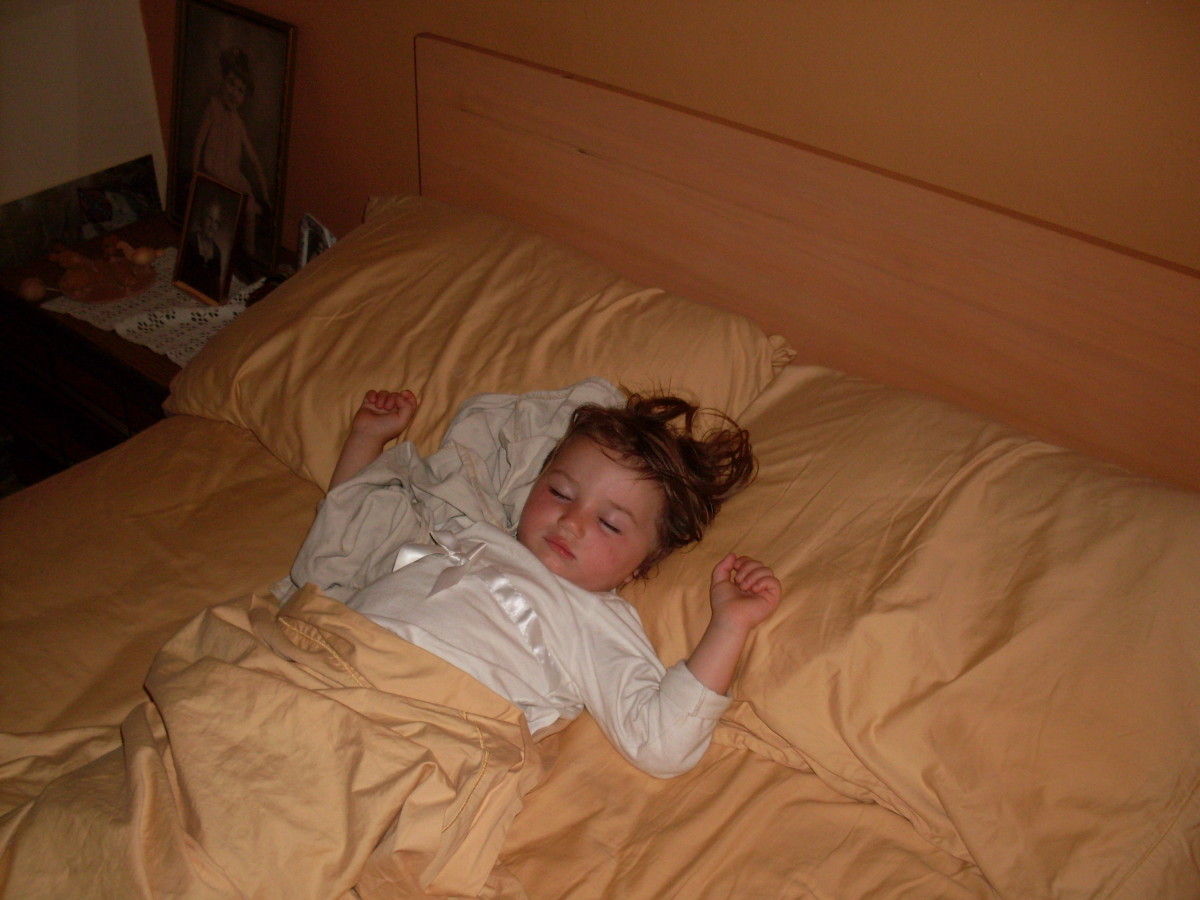10 Lessons Your Kids Will Learn In The Kitchen
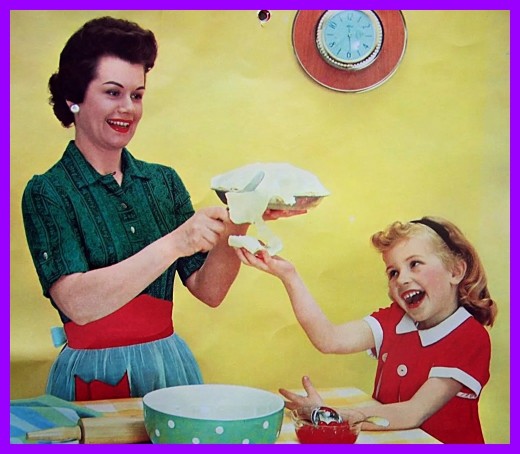
10 REASONS TO INVITE KIDS INTO THE KITCHEN
What is patriotism but the love of the food one ate as a child?
~Lin Yutang
It is true when they say the kitchen is the heart of the home. The kitchen is the source of replenishment, the room where great things happen. If memory is so married to the smells of childhood, then the kitchen serves as the scrapbook of the soul.
My husband and I both enjoy the art of cooking. It is not the size of our kitchen that counts (although I do dream of the vast culinary landscapes often seen on HGTV) but the food which comes from that tiny room. Food is so vital to our lives, to our well-being, and thus to our family. What other art can keep you alive, satisfy you, inspire creativity and cultivate memories which can last generations? As a passion for books inspires a family of readers, a passion for food inspires a family of chefs.
We have three children, and they witness our daily forays into the kitchen. Around the age of two, each child demonstrated their interest in all things food. Taking note, I began teaching my kids how to cook. As each child’s abilities mature, so do their lessons in cooking. It seems natural to me that my children should have fun learning how to cook, and that acquiring these skills will serve them the rest of their lives. Now my children are the ages of 12, 10 and 7. Each child can prepare at least one meal. My daughter recently stated that she has learned a lot from cooking. She told me that none of her friends know how to cook, and other parents do not allow their children to help in the kitchen. Thus, she and I put our heads together and easily developed ten reasons why kids should be allowed in the kitchen.
FOLLOWING DIRECTIONS
This is a skill everyone will use their entire lives! Starting at the age of two, I gave directions to my children so they felt a sense of trust and responsibility. Whether I asked them to crack two eggs or simply place an empty package in the trash bin, they were following directions. A recipe is essentially a set of directions. Using recipes to create dishes is a fun lesson, even when a mistake is made. Because learning from mistakes is a crucial part of gaining valuable experience, the kids have discovered that skimping on the directions in a recipe can lead to disappointing food. Reading, reading comprehension and the ability to follow step by step instructions has been great for my kids. This skill has especially helped them in school.
FOOD GROUPS
It's bizarre that the produce manager is more important to my children's health than the pediatrician. ~Meryl Streep
Before Kindergarten, my kids knew their foods. They understood why we always had a green vegetable, a starch, and a meat for dinner. They already knew what vitamins were, and that they came from foods. My children even practiced recognizing colors by using foods. My kids knew cheeses were part of the dairy group, and that this group helped you build strong bones. It became a game. “Mom, I’m eating baby spinach, which means I am making my heart stronger…” They began associating every food with something it did for their body. They understood the term healthy and that eating good food would make their bodies strong. My mom said it, my mother-in-law said it, my grandmothers said it, and now I am saying it: spend your money in the grocery and you won’t have to spend it in the doctor’s office.
MATH AND MEASURES
“Mom, I did more math making those cookies than I did at school today!” This is what my daughter said when we made multiple batches of cookies one night. Around the age of 7 or 8 my kids learned how to measure ingredients. Before, they had played with my measuring cups and spoons, and now they use them to measure specific ingredients. We use several recipes from online sources, so we use the metric system as well as U.S. Standard Units. Again, this became a game for the kids. When my daughter asked how much she weighed when she was born, I had her hold a five pound bag of sugar. They know a gallon of milk weighs eight pounds. They know about ounces and cups. And because we are fortunate enough to live in a family of cooks, they even know the value of a dash, a smidge, a pinch and a handful! Whether we divide a recipe, double a recipe, or create our own version of a recipe, we use math every time.
RESPONSIBILITY
When I go to the grocery, I give the kids assignments. Like a scavenger hunt, they find the ingredients on the list and place them in the buggy. They know from experience that shopping for an ingredient is one of the responsibilities cooking requires. My children know we must thaw frozen meat the day before it is cooked (sometimes I forget and we must improvise!). They understand that our bodies demand food – it is our fuel – and so someone always has the responsibility of preparing our food. Cooking is linked to so many responsibilities, including safety. Learning how to prepare food, clean up after dinner, wash dishes, store groceries, plan a meal, put everything in its place, or follow the rules of safety in the kitchen are all responsibilities. Since they are having fun, the children are hardly aware of this fact!
ORGANIZATION
The cookbooks are located on the shelf. The pans are in the cupboard. The dry goods are in the pantry. Every kitchen has some rhyme or reason to it, and my kids know where things belong. Organization does not have to dominate a kitchen, but it does help when it comes to locating a spice or finding that special recipe. In our personal lives, consistency seems to be the key, whether it is asking the kids to return things to their proper places, or locate their back packs and lunch boxes. Same goes for the realm of the kitchen. Meal planning requires organization. This act helps us develop our grocery list, which is one more form of organization. The children have experienced the need for organization on different levels, and that such a skill makes life a little easier.
IMPROVISATION & IMAGINATION
All the organization in the world does not help us when life pitches a curve ball. Some folks handle change with grace while others shut down. While cooking may seem unrelated to this idea, there are moments in the kitchen when something does not go quite as planned. For example, the kids and I were preparing a recipe and realized too late that we were missing an ingredient! We improvised, and we liked our altered recipe even better than the original. Cooking can teach kids to put on their thinking caps and do some problem solving. Many times improvisation goes hand in hand with creativity. My husband and I are always “tweaking” a recipe – striving to enhance it and make it better. The children know experiments are OK in the kitchen, and that imagination always makes a better cookie. This world needs more imagination, and everyone needs to know how to improvise. Cooking is an art form, after all.
TEAM WORK
I cannot say enough about the bonding experiences my children and I have had in the kitchen. Cooking a meal is something which can be divided into tasks, and the kids can take on different responsibilities. We have to work together and we learn to appreciate one another. We laugh, we share ideas, we talk about our days – and most importantly, the children see they are a productive part of our family. We all contribute to the cause, so to speak, and we all reap the benefits afterwards. For example, weekend breakfasts are a big deal in our home. When one of my kids has a friend over to spend the night, we make sure they get to be a part of the breakfast experience. Whether it is chocolate chip pancakes or omelets, everyone has a great time. So often the visiting children delight in being allowed to participate. They enjoy cooking as much as my kids do. They feel creative and accomplished. As a family in the kitchen, we make a great team. We are all parts of a whole, in every aspect of our lives. The kitchen is an excellent place to realize this.
FUN
Cooking is fun. If cooking is not fun, perhaps you are in a rut, or perhaps you need more helping hands. So many mothers I talk to feel like meals are a burden they must bear, and they sometimes resent the responsibility of cooking meals day in and day out. If they had more help they wouldn’t feel so overwhelmed. I have a friend who watches FOOD Network and gets inspired to cook. She, too, allows her kids to help in the kitchen and the whole family loves the results. While some patience is required in teaching your children how to function in the kitchen, the results far outweigh the minor inconveniences. Make cooking fun! Food is such a beautiful, passionate, delicious part of our lives! When the kids and I hit the kitchen, we play our favorite music and have a good time. Our kitchen is a place where ideas are heard, thoughts are shared, and creativity happens.
MEMORIES AND TRADITIONS
How many times have you visited or read about a restaurant where the cuisine involves family recipes and traditions? Every culture is legitimized by its savory dishes and its indigenous ingredients. Third and fourth generation Italians are still cooking Great Grandma’s sauce. Every daughter remembers her mother’s best dish – the one that feels like home. Traditions are born and kept in the kitchens of the world. Your kitchen is not any different! Already my children have designated favorite dishes and favorite moments from our hours spent in the kitchen. They remember a special meal we made, or the laughter we shared over a particularly ugly cake. When I worked in a wealthy community, I often wondered if those families knew what they were missing when their chefs and nannies would arrive to prepare their dinners. Where did they make up for those intimate memories of smell and taste and tradition? Did their children ever learn to cook? If so, from whom? Cooking is fun and necessary and important. If your children are not part of your life in the kitchen, maybe that can change. The kitchen is the gathering place where we are nourished, both mind and body.



